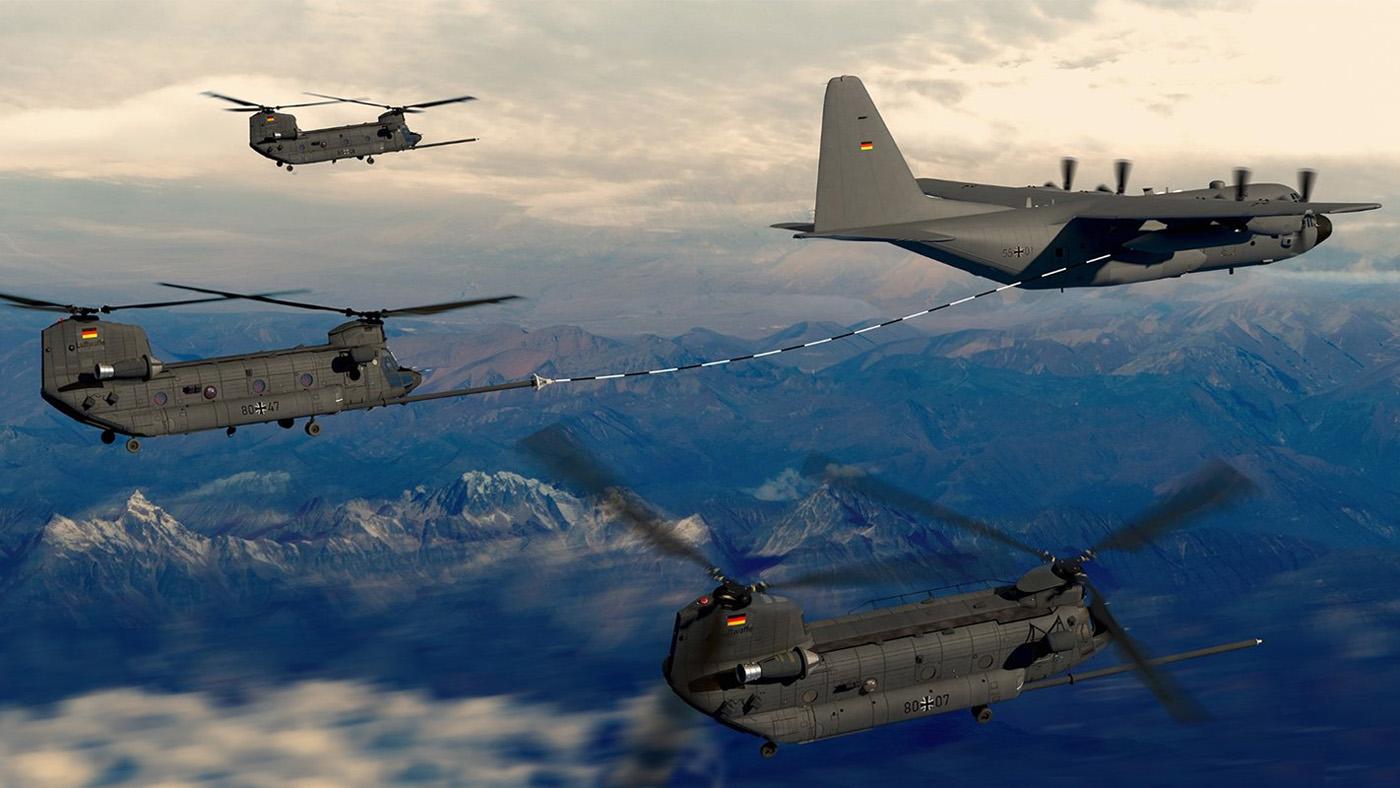
Boeing’s Chinook has won out in a face-off against Sikorsky’s CH-53K King Stallion for Germany’s Heavy Transport Helicopter (STH) requirement.
German Defense Minister Christine Lambrecht said June 1 that the Chinook was selected because the tandem-rotor platform was “tried and tested.
“With this model we are strengthening our ability to cooperate in Europe ... in addition, we are getting a larger fleet here and gaining flexibility,” Lambrecht said.
Germany plans to purchase 60 Block II-model Chinooks, making it the second foreign customer for the Block II after the UK, which placed an order for 14 Block II models in the MH-47G-like configuration last year.
The German aircraft will feature the standard fuel tank configuration and also include an aerial refueling probe to extend their range—a new capability for the German Air Force, which will operate the helicopters.
German officials said other factors in the procurement included the lower per unit price of the CH-47, as well as fewer technical, time and financial risks associated with the platform.
The Chinook is already in wide use with Germany’s NATO allies and neighbors including Italy, the Netherlands, Spain, and the UK, as well as U.S. forces based in Europe.
The selection finally closes out the long-running STH contest to find a replacement for Germany’s long-serving and increasingly difficult to support VFW-Fokker license-built fleet of Sikorsky CH-53G Stallion helicopters. They have been in service since the 1970s.
The German Air Force had openly called for an urgent decision on a CH-53G successor. The service said the fleet is struggling with obsolescence and spares shortages, impacting its operational availability.
Since it was launched in 2016, the STH program has struggled through cancellation, court cases and budgetary issues. The program also still needs to be OK’d by lawmakers before contracts can be signed.
The decision is another major victory for Boeing, which last year secured contracts for P-8 Poseidon maritime patrol aircraft. Prior to the P-8 deal, the last major sales for the company to Berlin had been for Joint Direct Attack Munition bomb kits and Harpoon anti-ship missiles. Before that it had been the sale of F-4 Phantoms by McDonnell Douglas in the late 1960s. But Boeing’s hope of selling a fleet of F/A-18 Super Hornets and EA-18 Growler electronic warfare aircraft were dashed when Berlin’s new government decided instead to buy Lockheed Martin’s F-35 Joint Strike Fighter.
Boeing said in a statement that it was honored by the German decision and looking forward to working with the German and U.S. governments to finalize the deal under the Foreign Military Sales process.
In March Boeing announced it had secured the support of Airbus Helicopters in a teaming arrangement that would support a Chinook purchase by Germany. Other members of the team are AERO-Bildung GmbH, CAE GmbH, ESG Elektroniksystem- und Logistik-GmbH, Lufthansa Technik AG, Honeywell Aerospace and Rolls-Royce Deutschland Ltd. & Co. KG.
Lockheed Martin said in a statement that it was disappointed in the German defense ministry’s decision, but said it remained “committed to our long-standing relationship supporting the German armed forces.”
The company said it was now awaiting a debrief from the German defense ministry on its decision.
